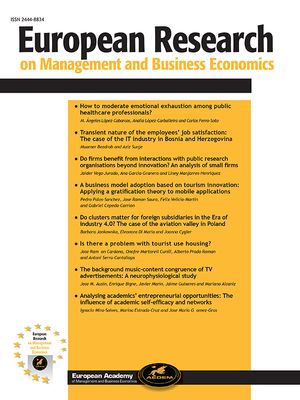La reputación empresarial es un recurso, una capacidad dinámica y un activo intangible, y por tanto, fuente de ventaja competitiva, generadora de resultados superiores. Este hecho justifica el creciente interés de las instituciones de prestigio y del ámbito académico por desarrollar una escala de medida que permita valorar la reputación empresarial como un constructo latente multidimensional. Con el objetivo de mejorar esta situación, este trabajo propone una herramienta de medida que integra las distintas perspectivas de estudio y medidas de la reputación, considerando los distintos grupos de interés y las perspectivas de análisis más utilizadas: actividad de la empresa y producto y/o servicio.
The corporate reputation is a dynamic capability and intangible asset, and therefore, as source of competitive advantage, generating of superior results. These circumstances justify the growing interest of the institutions of prestige and the academics for develop a measure scale that allows valuing the corporate reputation as a multidimensional latent construct. With the objective of improving this situation, this research proposes a measure tool that integrates the different perspectives of study and measure of the reputation, considering the different stakeholders and more used perspectives of analysis: activity of the company, and product and/or service.





